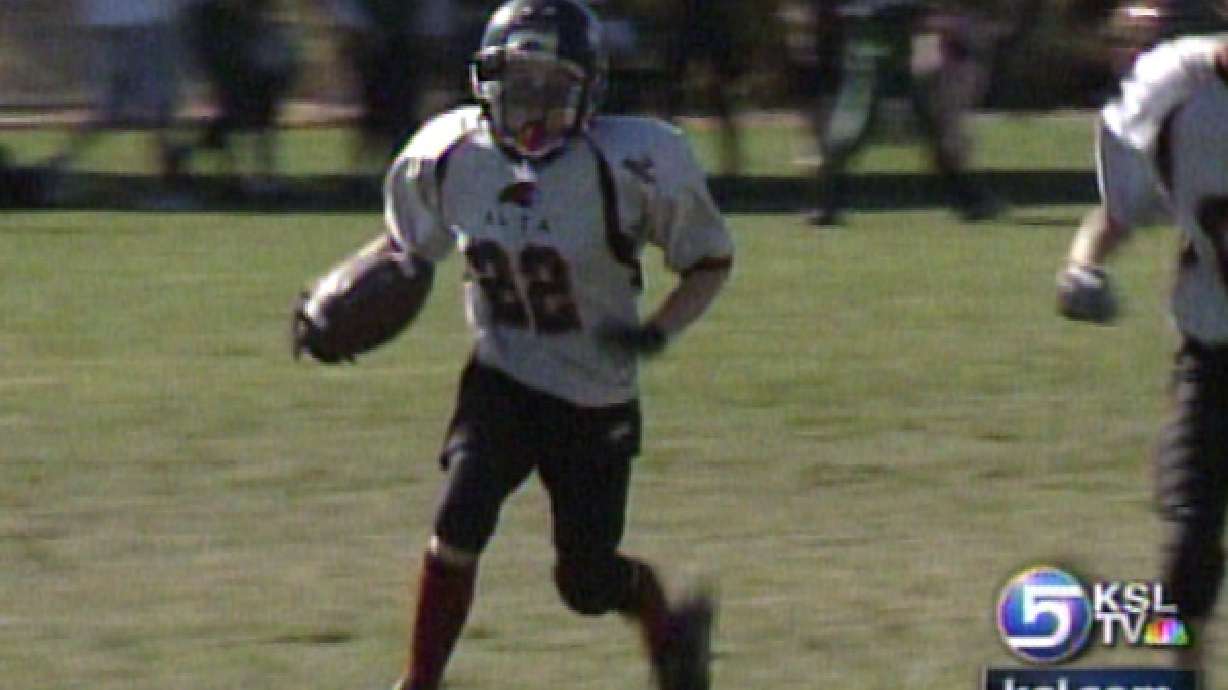Estimated read time: 3-4 minutes
This archived news story is available only for your personal, non-commercial use. Information in the story may be outdated or superseded by additional information. Reading or replaying the story in its archived form does not constitute a republication of the story.
Scott Haws ReportingChild obesity is now a health epidemic and kids spend more than 40 hours a week in front of a TV, computer or video game screen. Yet, at a time when athletic activity would help, 70 percent of children are quitting organized sports by the age of 13.
Experts and athletes call it the professionalization of youth sports, where winning, and whining in hopes of signing, have parents forking out big bucks and experts and athletes agree we all need a timeout.
"You gotta get into it, you can't, you cannot sit on the sidelines and not get into it."
For a former athlete like Ron Caldwell, "getting into it" as he watches his son Jay is part of the fun of youth sports, but the fun is fading in many leagues as more and more parents and coaches are literally "getting in to it" with players on the field and going after officials.
Combine that with more pressure on athletes to win at an earlier age and what do you get? Kids calling it quits.
Former Philadelphia Eagles tight end Chad Lewis has a unique perspective, having been to the top of his sport and now a father of five.
Chad Lewis, Former NFL Player: "Don't be so ever-present that you're fouling up team chemistry and team camaraderie ‘cause if you're always there and you think you're helping, you're probably not."
Raising eight children, two-time national league MVP Dale Murphy knows a thing or two about youth sports.
Dale Murphy, Former Major League All-Star: "Sometimes we as parents want our kids to be athletes and want them to love it. And sometimes they don't, even if they have athletic ability."
But with super-leagues, select teams, clubs and camps galore, the opportunities to play are endless. Now add in yearly dues, private clinics and travel and the costs for parents are out of the park.
Gary Pullins, Former BYU Baseball Coach: "The players typically now are not just playing for recreation, they and their parents are very motivated; the parents may be investing a lot of money."
Mel Olsen, National Association for Sport and Physical Education: "When it's so specialized and there's so much pressure it's not fun anymore, that's why they quit. They get burnout at an early age."
For Dr. Sam Goldstein, author of "Raising Resilient Children", the trends in youth sports aren't surprising.
Dr. Sam Goldstein, Author, "Raising Resilient Children": "We have designed a very competitive childhood as a means of trying to prepare children to become functional adults. It's a cruel world, we tell children, ‘you have to be on top.'"
So if 70 percent of kids are dropping out, what about the other 30 percent?
"We just love it. It's our social life. We just love sports."
And what's not to love, after all, more youth leagues are catering to the elite athlete where winning and rankings are top priority and championships and scholarships are all the talk.
So what's a parent to do?
Dr. Sam Goldstein: "There's no manual. There's no absolute set of guidelines. There's no right or wrong way. Parents have to trust their hearts and minds."
So let's say you're banking on your kid going all the way to the top of their sport, perhaps playing at the Delta Center. What are your chances of getting a financial return on that investment? If you filled all 19,911 seats with high school athletes, about 356 kids would get a college scholarship. From there only four would make it to the professional level.
How does a parent know when they're over-doing it from the sidelines? One thing that has helped a lot of parents and coaches is understanding your role. In fact there's a push by several national organizations to know your role. You're either an athlete, a coach, an official, or a fan -- pick one then support and respect the others.








